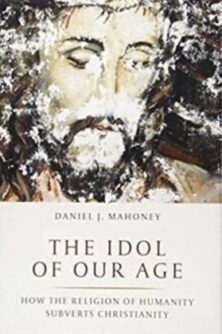
Pope Francis issued his third encyclical Fratelli Tutti (“All Brothers”) on the feast day of his namesake, St. Francis of Assisi, earlier this month. In the Roman Catholic Church, a papal encyclical is a pastoral letter issued by the Holy Father to offer teaching on a significant issue or issues.
Writ large, Fratelli Tutti is about fraternity and social friendship. It is wide-ranging, however. Its particular subjects include market capitalism, the COVID crisis, and the Church’s just-war theory, among others. In passages that caught our eye here at The Giving Review, it also addresses the topics of charity and justice, and their relationship with each other.
“[W]hereas individuals can help others in need, when they join together in initiating social processes of fraternity and justice for all, they enter the ‘field of charity at its most vast, namely political charity,’” according to Francis, for example. “I appeal for a renewed appreciation of politics as ‘lofty vocation and one of the highest forms of charity, inasmuch as it seeks the common good.’” (Endnotes omitted.)
We wanted to talk to Assumption University political-science professor Daniel J. Mahoney about the encyclical in general and those passages in particular. In a recent, in-depth Catholic World Report essay, Mahoney carefully, respectfully, and critically engages with Francis’ thinking in Fratelli Tutti.
“Our Holy Father is a good man and bishop, a precious witness to the Gospel, who rightfully reminds us of the priority of neighborly love and ‘social friendship’ for all Christians and men of good will,” according to Mahoney in the piece, “Brothers without Borders: Pope Francis’s Quasi-Humanitarian Manifesto.” “But when he departs from a specifically Catholic-Christian understanding of these imperatives he relies more on ‘private judgment’ than the ‘truth about man’ that is the source of the Church’s exquisite expertise about how human beings ought to live together.”
Mahoney’s most-recent book is The Idol of Our Age: How the Religion of Humanity Subverts Christianity, a work we appreciated and admired. His several previous books include The Conservative Foundations of the Liberal Order: Defending Democracy Against Its Modern Enemies and Immoderate Friends and Aleksandr Solzhenitsyn: The Ascent from Ideology.
Mahoney is also one of the principal founders of the new “Liberty and Justice for All” project, which is seeking to develop unity about the meaning and practice of American citizenship, civic education, and constitutionalism. We and our fellow Giving Review co-editor Bill Schambra are all signatories to the project’s September open letter.
In the first of two parts of the conversation that Mahoney was kind enough to have with us last week, we discuss Fratelli Tutti’s many “innovations” in Catholic social teaching, including global humanitarianism. Below is the conversation’s second part—which covers the politicization of charity, as well as justice, subsidiarity, and what Francis calls “political love” in the encyclical. It is just more than 15 minutes long.
“Most Catholics believe in the hermeneutic of continuity. That means what the Pope says has to be interpreted in light of the tradition” Mahoney says. In Fratelli Tutti, Francis “seems to suggest that a deeper form of Christianity is at the level of politics. I think his predecessors would be extremely nervous about that move.”